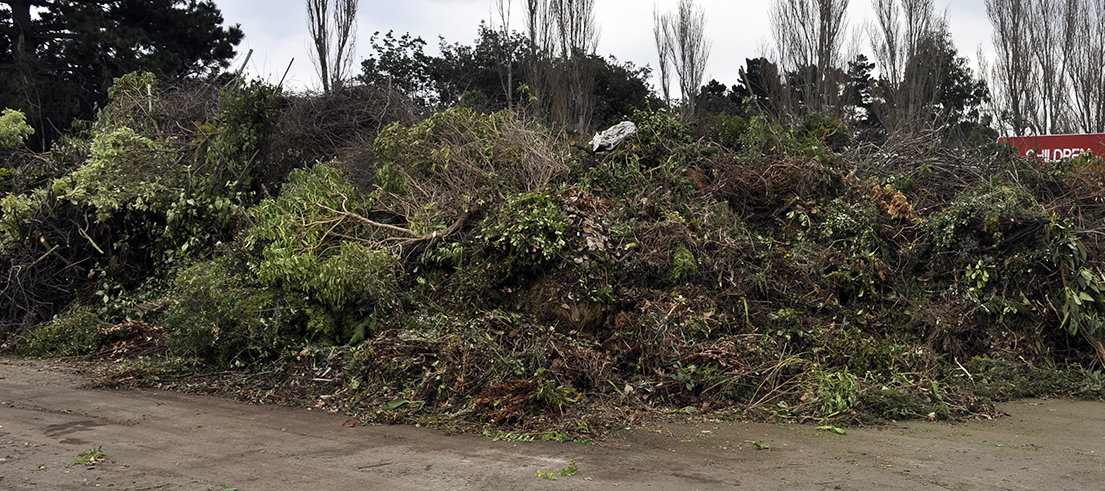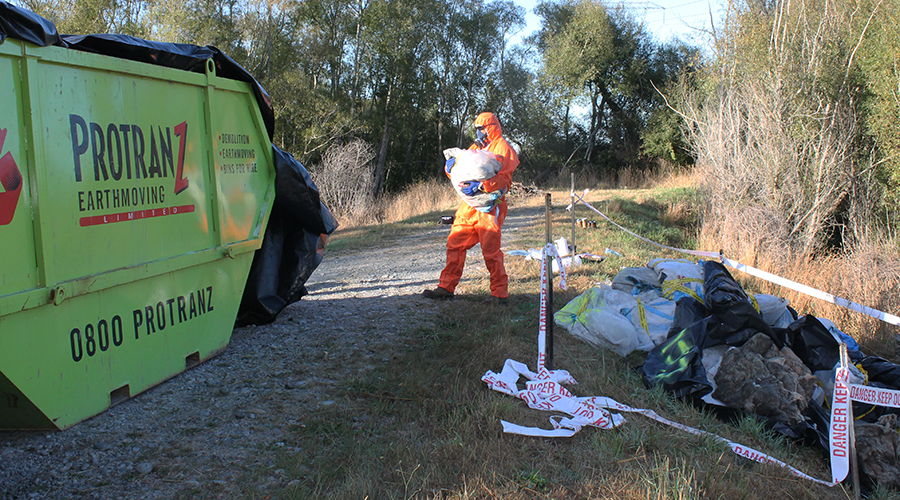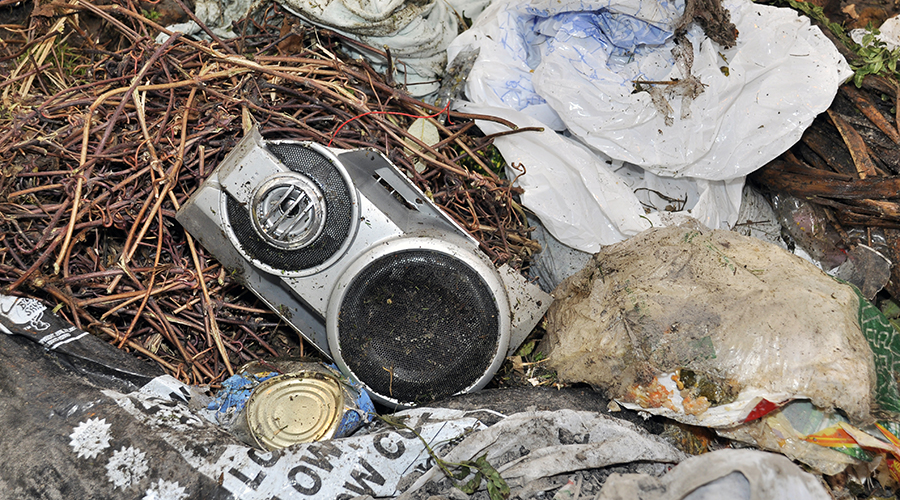
Green waste putting waterways at risk
Illegal dumping is rife across the region and it’s not just the inorganic items that are putting our flood protection, biodiversity, and water health at risk.
With many people taking the recent long weekends to maintain their gardens in preparation for winter, there's often an increase in green waste making its way into our local waterways.
Although green waste, such as hedge trimmings and branches, is natural and will break down eventually, it’s still important this is disposed of correctly. Left to break down in our waterways, it can lead to obstructions and damage to flood protection infrastructure which needs to be operating optimally, particularly at this time of year, Flood Protection - Recovery Manager Shaun McCracken said.
"Green waste can lead to blocked culverts, floodgates and other critical infrastructure, preventing stormwater from draining away," he said.
"That can be difficult and sometimes impossible to remove during a storm or flood event, which can exacerbate issues at an already challenging time. Our rivers have high ecological value and dumping rubbish in them can harm water quality, native habitat and also hinder flood protection measures."
"We’re also very aware that some of our river systems affected by the 2021 floods are still congested with trees and debris from that event. Clearing these is a big task that we’re making good progress on, but this is not yet complete."
The cost of green waste on our environment
Green waste is also often the first point of contact for the spread of weeds, such as old man’s beard. Weed infestations can destroy native species and flood protection plantings, with control measures and damage to flood protection infrastructure costing the community.
Even seemingly innocuous lawn clippings have unwanted chemical break-down processes which are not helpful for maintaining healthy waterways.
Of course, it’s not just green waste that is a problem when it makes its way to our waterways. Inorganic items which do not break down are increasingly being discovered illegally dumped in our riverbeds regionwide. Not only can these items be a health and safety issue for members of the public, animals and those having to remove the rubbish, but having these items removed appropriately also comes with a cost to ratepayers.
Dumping rubbish is an offence under the Resource Management Act and carries with it an immediate $750 infringement, along with any costs associated with removal of the rubbish.
In many instances, materials that are dumped could have been disposed of for free at local waste stations, which also offer cheaper disposal rates for green waste than general rubbish.
Green waste can also be composted into nutritious feed for your garden or, if you meet the conditions of the Canterbury Air Regional Plan, it can also be burnt. Find out more about this on our outdoor burning page or our outdoor burning news story.
What you can do to help
At this time of year, it’s more important than ever that we ensure our waterways and the structures within them are able to do the job they’re designed to do and that means keeping them clear and unobstructed.
Shaun encourages people to contact us if they see illegal dumping taking place.
If you see suspicious activity or rubbish being dumped in a riverbed, please note the details of the vehicle and location, and report it to our Incident Reporting Line on 0800 765 588 or by using the Snap Send Solve app (for Apple or Android) or online reporting tool.
"It’s really disappointing when rubbish is dumped in our riverbeds," he said.
"The community values its rivers and the ratepayer should not have to bear the cost of this illegal activity."


